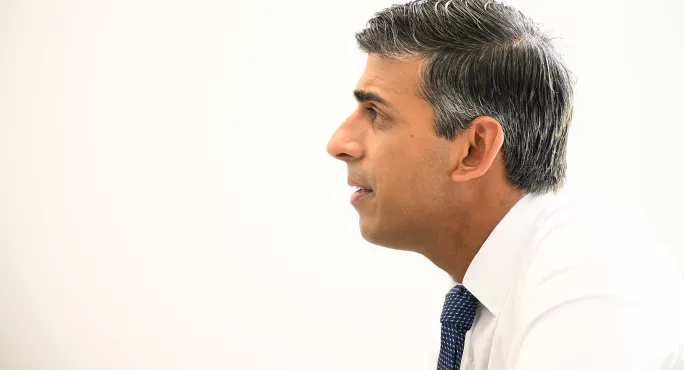Rishi Sunak’s plans for a British Baccalaureate have been dismissed as a “sketchy slogan” that is “largely meaningless without more detail” by a union leader.
It was reported last night that the prime minister is planning to establish a new style of British Baccalaureate.
This would involve substantial A-level reform, with English and maths becoming compulsory until the age of 18 and students required to study a wider array of subjects in post-16 education.
The prime minister has previously said all pupils in England should study some form of maths up to the age of 18, criticising a “cultural sense that it’s OK to be bad at maths”.
And during his unsuccessful leadership bid last year, Mr Sunak proposed the idea of a British Baccalaureate.
Geoff Barton, general secretary of the Association of School and College Leaders, questioned whether Mr Sunak’s baccalaureate plans would involve scrapping and replacing A levels, T levels, Btecs and existing functional skills qualifications, or incorporating them.
Mr Barton said: “There is merit in looking at increasing subject breadth in post-16 education, but the idea of a ‘British Baccalaureate’ is no more than a sketchy slogan, with the prime minister’s rehashed plan for compulsory maths until the age of 18 bolted on.
“The government has spent a fortune on introducing T levels - a highly-specialised qualification which fills the timetable on its own. It is difficult to see how this could then be incorporated into a British Baccalaureate.
”There has been no discussion with the education sector about this idea and, without any detail of what is being proposed, it is a policy which is largely meaningless.”
Sam Freedman, a former Department for Education adviser, has strongly criticised the proposal, which he said “betrays such a staggering failure to understand our education system it’s unreal”.
In a series of posts on social media, he added: “You’d have to redo the entire national curriculum and change university course structures. Nor do we have anywhere near enough teachers for it to be plausible.”
“The issue with the Bacc idea is not whether it might be a good proposal in theory but the absurdity of suggesting it now when everything is falling apart. It’s like turning up to a house fire and proposing redoing the kitchen.”
Dr Patrick Roach, general secretary of the NASUWT teaching union, said: ”A levels and post-16 learning offers look the way they do now because this is how this government wanted them to look.
“The problems that the prime minister claims to have identified and wants to solve were created by his ministerial colleagues.”
He said that the 14-19 diplomas discarded by the government a decade ago were on a path to deliver a range of broad, balanced, relevant and engaging learning pathways for young people.
Shadow education secretary Bridget Phillipson described the plan as an “undeliverable gimmick” on BBC Newsnight last night.
She said: “Rishi Sunak should be focusing on long-term plans to improve literacy and numeracy in younger children, not pursuing short-term headlines with this unworkable policy, which will do nothing to raise standards.”
A DfE spokesperson said: “Since 2010 we have made huge progress in driving up school standards and giving young people the best start in life, with record funding for schools and more full-time teachers than ever before.
“We have already taken steps to reform the post-16 qualifications landscape, including reforming technical education and delivering millions of new high-quality apprenticeships.
“Alongside this, we have set out bold plans to ensure that every young person studies some form of maths up to the age of 18 to give them the skills they need to succeed in the jobs of the future”.




